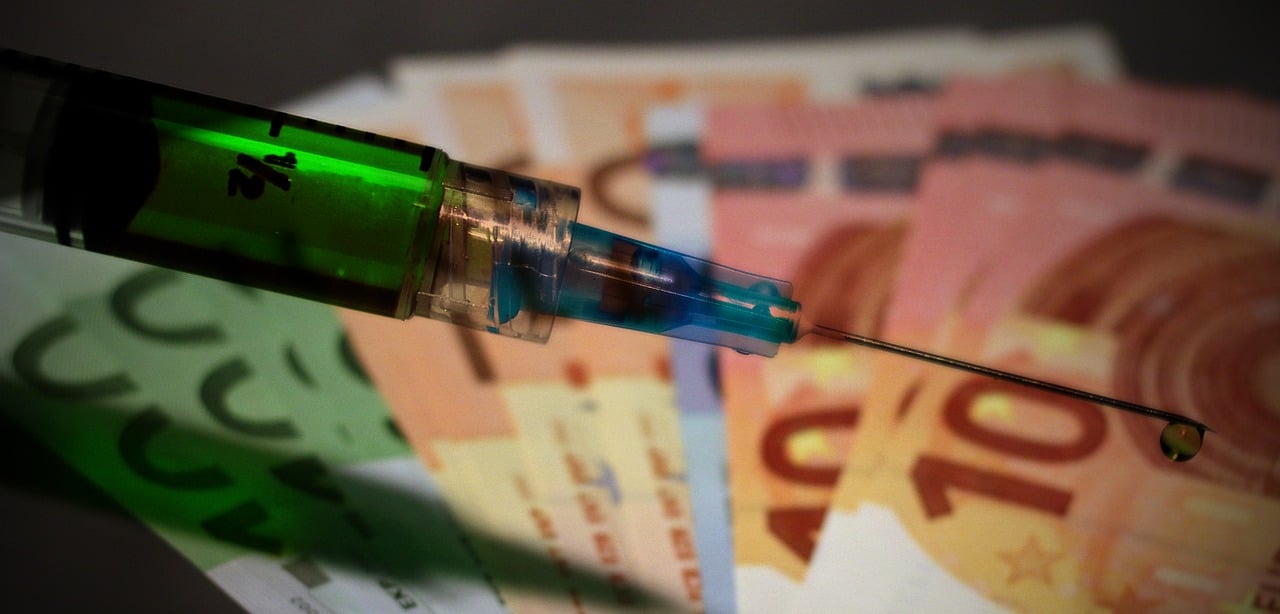Biotech
Biomedical Companies in Spain Demand Tax Incentives for R&D Adapted to the Reality of the Sector
There are many companies in the biomedical sector that, being in the investment or expansion phase, have negative or reduced quotas. Given this particularity, what monetization allows is to require the tax administration to return all the amounts that have not been possible to compensate due to insufficient quota. This allows the company to apply tax deductions of 80% to avoid incurring international double taxation.

The biomedical companies demand better tax incentives to continue being a driver of investment in Research and Development (R&D) in Spain. The deduction in the payment of Corporate Tax on this type of investments is an increasingly important option for R&D in health, but this instrument does not always adapt to the reality of start- ups and scale-ups in this field.
The reason? Their economic cycle, in which investments come long before the generation of profits, means that they cannot enjoy these incentives . And its alternative, the monetization of R&D, is also imperfect.
This instrument, created in 2013, allows deductions even at negative contribution levels: that is, if a company has zero Corporate Tax and proves a substantial investment in R&D, the tax administration could pay it in cash for part of the investment made. The problem with this mechanism, as some sector executives warned last week at the CataloniaBio&HealthTech assembly, is the rigid implications for depending on which companies when it comes to accepting the measure.
Data from the V International Barometer of Innovation from the consulting firm Ayming indicate that financing via tax deductions in the health sector will be the option of 50% of companies in this area in Spain in 2024, 17 points more than in the previous year. This is a seemingly natural choice. The Spanish fiscal framework offers, on paper, savings of up to 70% in R&D. But voices from the biomedical field understand that this same framework brings some problems for them.
The R&D deduction in the biomedical sector may have little impact on some companies, since start-ups generate short-term profits and, if they obtain them, they do not pay Corporate Tax because they compensate it with the losses from previous years.
Read more about the biomedical companies in Spain and find the latest financial news of the day with our companion app Born2Invest.
Challenges of biomedical companies in Spain
The biomedical sector must face specific challenges related to the structure of its innovation cycle to obtain tax credits. Javier Selva, CEO of the association, pointed out among these challenges, those related to the fact that R&D times in the biomedical field are longer, so bringing products to the market and obtaining benefits requires more time. And in that time the structure of the company can change, which leaves a good number of companies outside of some tax tools.
Therefore, Selva continued: “concrete measures to apply in the Corporate Tax may have less impact, since few start-ups generate profits in the short term, or if they obtain them, they do not pay it, since they compensate it with the losses of the previous years.”
Among the different measures listed, some of the attendees at the tax forum prior to the CataloniaBio&HealthTech assembly highlight the aforementioned monetization of R&D, a tax instrument that can be a solution to the objections pointed out by Javier Selva for biomedical companies with a low taxation. That is because, in Spain, the set of deductions for R&D are limited to between 25% and 50% of the full quota , resulting from the application of state or regional taxes to the taxable base of a company.
There are many companies in the biomedical sector that, being in the investment or expansion phase, have negative or reduced quotas. Given this particularity, what monetization allows is to require the tax administration to return all the amounts that have not been possible to compensate due to insufficient quota .
Specifically, this tool allows the company to apply tax deductions of 80% to avoid incurring international double taxation. And in this way, all the deduction that remains to be applied once the quota has been exhausted returns in the form of a monetary transfer.
Disadvantages for biomedical companies
But this advantage comes with fiscal tolls, Mónica Sevilla, a partner in the Garrigues tax law department, warned in the tax forum of the Catalan employers’ association. Taking advantage of this instrument means giving up 20% of the deduction, and also requires some requirements that may be unattainable for biomedical companies with a start-up, scale-up or spin-off structure .
These are that the average workforce dedicated to the R&D activity is not reduced in the following two years after the end of the tax period in which the credit application is made , that the amount dedicated to this activity is not less than the previous period and obtaining a reasoned report on the R&D qualification from the Treasury.
At least one year must also pass from the end of the tax period in which the deduction is generated and without it being applied , which can impose cycles for the execution of the bonus of about three years.
The first assumption can be problematic for those companies that outsource part of their R&D by working jointly with other institutions , such as universities and research centers, a common practice among emerging companies.
Regarding the loss of 20% of the bonus when benefiting from monetization, Mónica Sevilla concluded: “It is a good incentive for you to obtain liquidity, even if you lose 20% of the deductions, since perhaps you would never be able to apply the other bonuses.”
In the same forum, the need was raised for, since the biomedical sector is the one that innovates the most after the automotive sector, the structure of its innovation cycle, highly dependent on start-ups and scale-ups , be taken into account, to guarantee that the maximum possible companies can benefit from instruments such as monetization.
In any case, public support will be key in the development of the healthcare market in 2024, according to the aforementioned Ayming data. 58% of companies in the biomedical field in Spain will resort to national or regional subsidies to finance their R&D spending in the current fiscal year. While 23% will obtain their funds for this concept from international aid.
__
(Featured image by geralt via Pixabay)
DISCLAIMER: This article was written by a third party contributor and does not reflect the opinion of Born2Invest, its management, staff or its associates. Please review our disclaimer for more information.
This article may include forward-looking statements. These forward-looking statements generally are identified by the words “believe,” “project,” “estimate,” “become,” “plan,” “will,” and similar expressions. These forward-looking statements involve known and unknown risks as well as uncertainties, including those discussed in the following cautionary statements and elsewhere in this article and on this site. Although the Company may believe that its expectations are based on reasonable assumptions, the actual results that the Company may achieve may differ materially from any forward-looking statements, which reflect the opinions of the management of the Company only as of the date hereof. Additionally, please make sure to read these important disclosures.
First published in PlantaDoce. A third-party contributor translated and adapted the articles from the originals. In case of discrepancy, the originals will prevail.
Although we made reasonable efforts to provide accurate translations, some parts may be incorrect. Born2Invest assumes no responsibility for errors, omissions or ambiguities in the translations provided on this website. Any person or entity relying on translated content does so at their own risk. Born2Invest is not responsible for losses caused by such reliance on the accuracy or reliability of translated information. If you wish to report an error or inaccuracy in the translation, we encourage you to contact us

-

 Biotech2 weeks ago
Biotech2 weeks agoWhy Bioceres Shares Slide Into Penny Stock Territory
-

 Crowdfunding1 day ago
Crowdfunding1 day agoReal Estate Crowdfunding in Mexico: High Returns, Heavy Regulation, and Tax Inequality
-

 Africa1 week ago
Africa1 week agoAgadir Allocates Budget Surplus to Urban Development and Municipal Projects
-

 Biotech5 days ago
Biotech5 days agoVolatile Outlook for Enlivex Therapeutics as Investors Await Clinical Catalysts
























